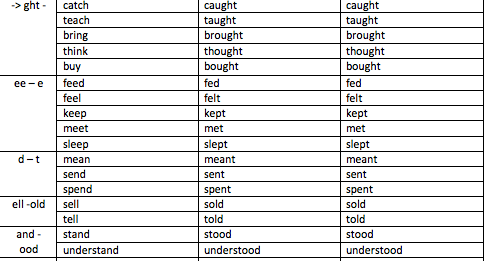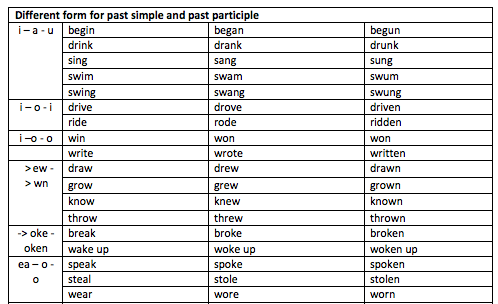Working on A2 Flyers grammar – past simple and present perfect
In this post, I’m going to share some ideas for working on grammar, especially the irregular verbs on the A2 Flyers wordlist.
About A2 Flyers irregular verbs
There are 92 irregular verbs on the A2 Flyers wordlist, which you can find in the Wordlists document available to download here.
A2 Flyers verbs can be irregular in various ways:
No change
Some verbs, like ‘hurt‘ or ‘hurt‘ remain unchanged, with the same form and pronunciation as the infinitive/present simple. ‘Read‘ keeps the same spelling, but the pronunciation changes from /i:/ to /e/.
Same form for past simple and past participle
Other verbs change their spelling (and pronunciation obviously), keeping the same spelling for both the past simple and past participle. Verbs like ‘sleep‘ > ‘slept’, ‘bring’ > ‘brought’, ‘send’ > ‘sent‘.
We can help learners to memorise some of these irregular verbs by grouping verbs with similar patterns together.

Some verbs keep the same form for the past simple and past participle, but they do not share a pattern with other verbs, so they have to be memorised individually. Verbs like ‘hold’ > ‘held’ or ‘sit’ > ‘sat’.
Different form for past simple and past participle
Other verbs change for both the past simple and to form the past participle. Verbs like ‘drink’ > ‘drank’ > ‘drunk’. Or ‘throw’ > ‘threw’ > ‘thrown’.
Again, we can help learners by grouping verbs with similar change patterns together.

And once again, there are verbs which can’t be grouped with other verbs, because there is no shared pattern. Verbs like ‘choose’ > ‘chose’ > ‘chosen. Or ‘do’ > ‘did’ > ‘done’.
To help you and your learners, I’ve prepared some tables, grouping the verbs together where there is a pattern. You can download it here.
So, you’re working on these verbs. It’s important to give learners some opportunities to use them in meaningful contexts.
You might find my previous post on A1 Movers grammar useful for that.
And watch out for my future post with some ideas for doing just that!
